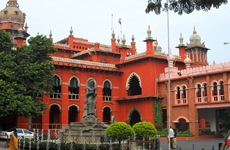

The division bench said this while setting aside a single judge order passed earlier in the case of a cane officer of Perambalur Cooperative Sugar Mills. The officer had demanded a bribe from a junior officer for a transfer.
When the bribe thing came to light the cane officer was suspended but his suspension was revoked on the ground that he was not a public servant and therefore could not be covered under the PC Act.
Advocate general A L Somayaji told the court as cooperative sugar mills do public duty and, therefore, their employees are public servants. Chiming with the advocate general, the court said; “Any person who is an office-bearer or an employee of educational, scientific, social, cultural or other institutions, whatever manner would be, receiving or having received any financial assistance from the central or any state government, or local or other public authority, will come under the definition of ‘public servant”.
Hailing the High court opinion, some leading cooperators in Chennai have said mismanagement and graft being synonymous with the cooperative sector it was time the PC Act covered this sector. This will go a long way in curbing the rampant corruption as well as refurbishing the image of the cooperative movement, they underlined.
There are thousands of people employed in the cooperative sector in Tamil Nadu.




















































It is necessary to high light these words
“receiving or having received any financial assistance from the central or any state government, or local or other public authority,” as this would take out a large number of Cooperatives out of PC Act.
Court had finally remarked; —
Noting that governments had “deep and perverse control” over sugar mills whose staff were performing “public duty”, the judges said: “Thus it is beyond doubt that sugar mills and its employees are performing “public duty” like private aided/unaided recognised educational institutions, coming within the definition of Section 2(c)(viii) of the Prevention of Corruption Act, 1988.”
My humble opinion is, this was an acceptable fact prior to 97th CAA. 97th CAA has bifurcated Cooperative Societies from Associations (Article 19(1)(c)) under which constitutional category the coops were considered previously. Now, Cooperative Societies are no more Associations as quoted by the H’ble HC. Associations and Cooperative Societies are not one and the same. Associations are formed through “Member Economic Contribution” whereas Cooperatives are formed through “Member Economic Participation”, one of the principles of Cooperation. Though it is an oasis, in India the cooperative sector is a separate world wef 15-02-2013. It doesn’t mean that the cooperative employees are autonomous with in the cooperative autonomy, individual management policies should address unfair practices of employees and office bearers.
The matter related to To Tiruttani cooperative sugar mills Tamilnadu. There is no Perambalur cooperative sugar mills.